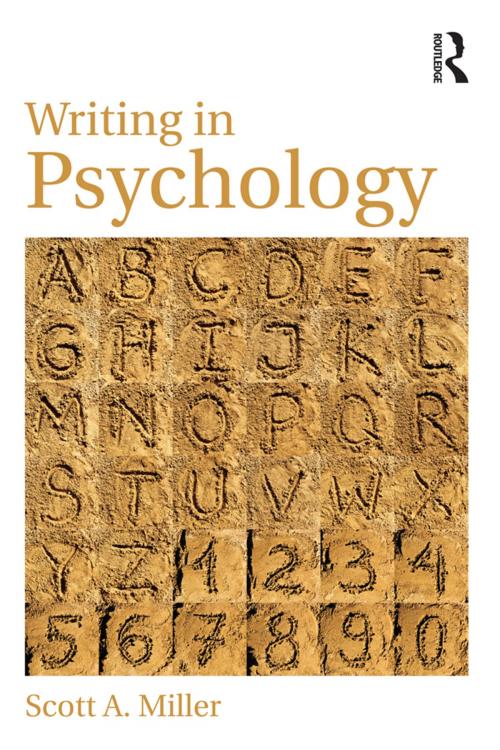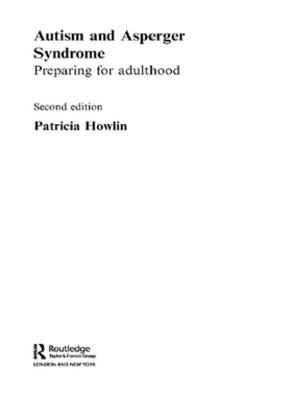Writing in Psychology
Nonfiction, Health & Well Being, Psychology, Research, Education & Training, Reference & Language, Education & Teaching| Author: | Scott A. Miller | ISBN: | 9781317970903 |
| Publisher: | Taylor and Francis | Publication: | November 20, 2013 |
| Imprint: | Routledge | Language: | English |
| Author: | Scott A. Miller |
| ISBN: | 9781317970903 |
| Publisher: | Taylor and Francis |
| Publication: | November 20, 2013 |
| Imprint: | Routledge |
| Language: | English |
This book helps readers become better writers of psychology and better writers in general. After reading thousands of course papers, theses, and dissertations, Dr. Miller knows and addresses the issues that students find most challenging when writing about psychology. Written with the utmost flexibility in mind, the chapters can be read in any order. More comprehensive than similar texts, this book provides detailed coverage of how to write empirical reports, research proposals, and literature reviews, and how to read meta-analyses. Readers will also find invaluable strategies for improving one’s writing including how to adopt an engaging yet accurate style, thorough coverage of grammatical and word use rules that govern writing in general, and the APA (American Psychological Association) rules that govern the expression of that content.
Readers will appreciate these helpful learning tools:
-
Describes the most common APA style rules encountered and/or highlights references to the Manual when more detailed knowledge is required.
Numerous examples from journal articles that help readers gain a clearer understanding of content they will encounter in writing psychological reports.
Chapter exercises that provide an opportunity to apply the points conveyed in each chapter.
Examples of the most common mistakes made by students and how to avoid them and best practices for improving one’s writing.
Tables that help readers gain a clearer understanding of the new standards in the APA Publications Manual, 6th ed (Appendix A).
Errors in APA Style exemplified via an improperly formatted paper and another version noting corrections pertaining to APA style and grammar, to highlight the most common pitfalls encountered by students (Appendix B).
Ideal for courses on writing in psychology or as a supplement for graduate or advanced undergraduate courses in research design or research methods, this book also serves as a resource for anyone looking for guidance on how to write about psychological content.
This book helps readers become better writers of psychology and better writers in general. After reading thousands of course papers, theses, and dissertations, Dr. Miller knows and addresses the issues that students find most challenging when writing about psychology. Written with the utmost flexibility in mind, the chapters can be read in any order. More comprehensive than similar texts, this book provides detailed coverage of how to write empirical reports, research proposals, and literature reviews, and how to read meta-analyses. Readers will also find invaluable strategies for improving one’s writing including how to adopt an engaging yet accurate style, thorough coverage of grammatical and word use rules that govern writing in general, and the APA (American Psychological Association) rules that govern the expression of that content.
Readers will appreciate these helpful learning tools:
-
Describes the most common APA style rules encountered and/or highlights references to the Manual when more detailed knowledge is required.
Numerous examples from journal articles that help readers gain a clearer understanding of content they will encounter in writing psychological reports.
Chapter exercises that provide an opportunity to apply the points conveyed in each chapter.
Examples of the most common mistakes made by students and how to avoid them and best practices for improving one’s writing.
Tables that help readers gain a clearer understanding of the new standards in the APA Publications Manual, 6th ed (Appendix A).
Errors in APA Style exemplified via an improperly formatted paper and another version noting corrections pertaining to APA style and grammar, to highlight the most common pitfalls encountered by students (Appendix B).
Ideal for courses on writing in psychology or as a supplement for graduate or advanced undergraduate courses in research design or research methods, this book also serves as a resource for anyone looking for guidance on how to write about psychological content.















